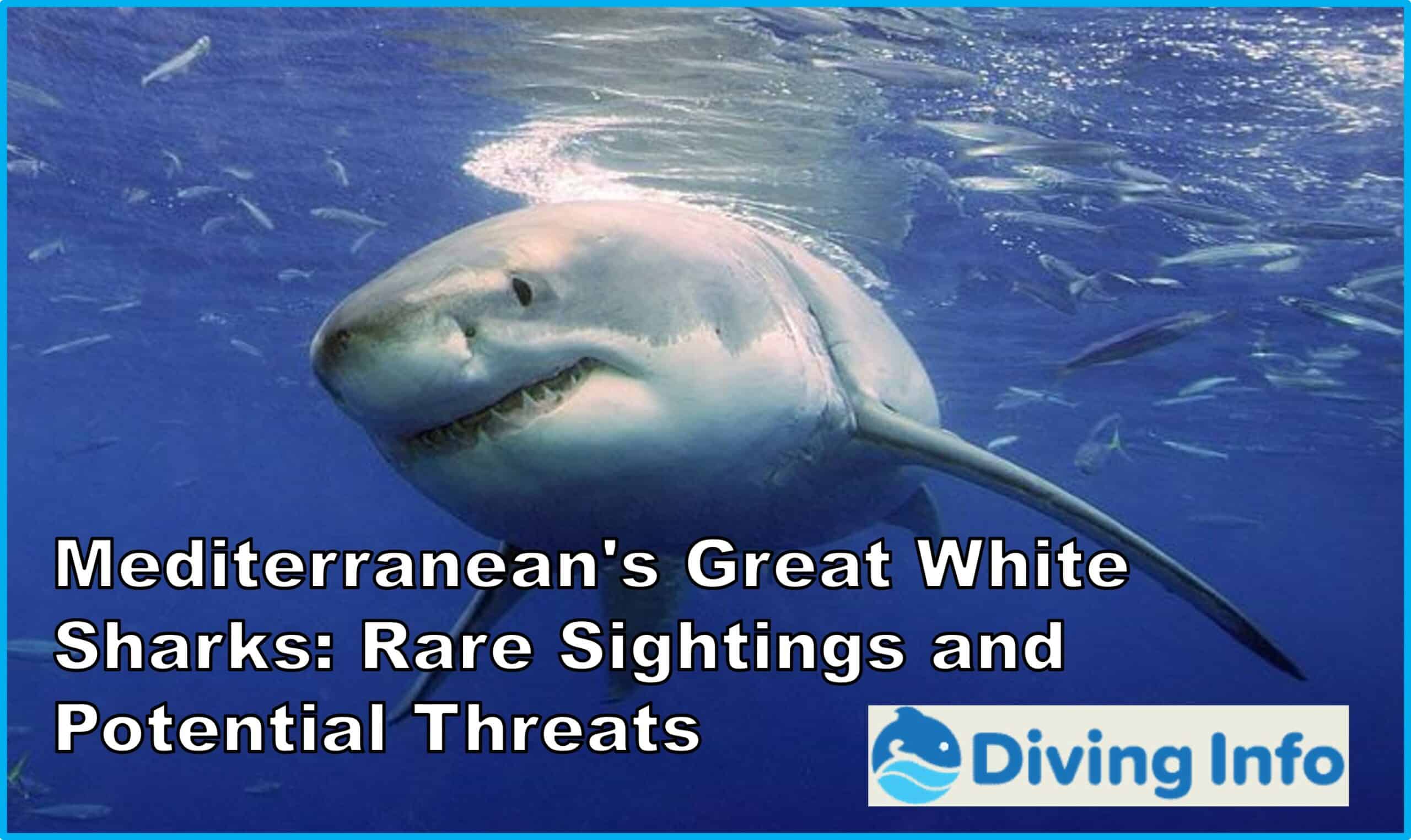*This post may contain affiliate links. As an Amazon Associate we earn from qualifying purchases.
You may think you know great white sharks – the ultimate predator of the ocean, the stuff of nightmares, the creature that sends shivers down your spine. But what if we told you that these powerful creatures are not only found in the waters of South Africa, Australia, and California, but also in the Mediterranean Sea? That’s right, the great white shark, a creature so often associated with far-flung locations, can also be found in one of the world’s most popular holiday destinations.
But don’t panic just yet. While sightings of great white sharks in the Mediterranean are rare, they do occur. In this article, we’ll explore the facts surrounding these sightings, including where they have been seen, their behavior and movements, and the potential threats that could threaten their survival in the future.
So, whether you’re a seasoned diver or a beachgoer, read on to discover more about the fascinating world of the Mediterranean’s great white sharks and what you can do to help protect them.
The diverse world of shark varieties is full of surprises.
Existence and Habitat
You may be surprised to learn that great white sharks are actually found in the Mediterranean Sea, and their habitat is determined by the sea water temperature and region.
The Mediterranean Sea has a diverse range of sea temperatures, with some regions having the perfect temperature year-round for great white sharks. However, sightings of great white sharks in the Mediterranean are rare due to their migratory nature, but pregnant females and newly born great white sharks have been sighted in the Sicilian channel.
Find out more about protected diving among sharks.
Despite their presence in the Mediterranean Sea, great white sharks face habitat challenges, including prey availability. Great white sharks prefer sea water temperatures between 12-24°C. While the sea water temperature in the Mediterranean Sea near Italy’s Lampedusa Island ranges from 14.9-26°C, it may not always provide enough prey to support a population of great white sharks.
Furthermore, the population of great white sharks in the Mediterranean is already small, which means the lack of diversity may threaten their survival.
You may be interested in my other articles about Are there great white sharks in the Maldives or Best time to see great white sharks in Cape Cod.
Population and Migration
There’s an interesting fact about the population and migration of these creatures. While great white sharks are found in the Mediterranean Sea, sightings of them are rare. This is because their population in the region is already small, which could potentially threaten their survival.
Great white sharks are migratory fish and move from region to region, with some regions of the Mediterranean having the perfect water temperature year-round for them. Pregnant females and newly born great white sharks have been sighted in the Sicilian channel in the Mediterranean Sea, indicating that the region could be a great white shark nursery. Scientists also believe that like salmon, great white sharks always return to their birthplace. Understanding great white shark behavior and their role in the Mediterranean Sea ecosystem is important to ensure their survival and the balance of the ecosystem.
| Behavior | Description |
| Migration | Great white sharks are migratory fish and move from region to region. |
| Nursery | Pregnant females and newly born great white sharks have been sighted in the Sicilian channel, indicating that the region could be a great white shark nursery. |
| Return to birthplace | Scientists believe that like salmon, great white sharks always return to their birthplace. |
In addition to their role in the ecosystem, understanding the population and migration patterns of great white sharks is crucial for their conservation. With the Mediterranean Sea being a potential nursery for these creatures, it is important to protect the region from human activities that could harm them. The small population of great white sharks in the region also means that their genetic diversity is at risk, which could further threaten their survival. By studying their behavior and understanding their role in the ecosystem, we can work towards protecting and conserving the great white shark population in the Mediterranean Sea.
Conservation and Future
To ensure the conservation of these majestic creatures, it’s important to understand their behavior and migration patterns. Here are some ways that conservation efforts are being made to protect great white sharks in the Mediterranean:
- Collaborative Research: Scientists and researchers are working together to gather more data on great white sharks in the Mediterranean. This information will help to create effective conservation strategies and protect their natural habitats.
- Fishing Regulations: Fishing regulations have been put in place to protect great white sharks from being accidentally caught in fishing nets. This helps to prevent injury or death to the sharks and maintain a healthy population.
- Tourism Impact: The impact of tourism on great white shark populations is being studied to minimize the negative effects. This includes regulating shark diving tours to prevent overcrowding and ensuring that tour operators follow responsible practices.
- Public Awareness: Raising public awareness about the importance of great white shark conservation is crucial to their survival. This includes educating people about the threats facing these animals and encouraging them to take action to protect them.
By implementing these conservation efforts, we can help to protect the great white shark population in the Mediterranean for future generations to enjoy.


